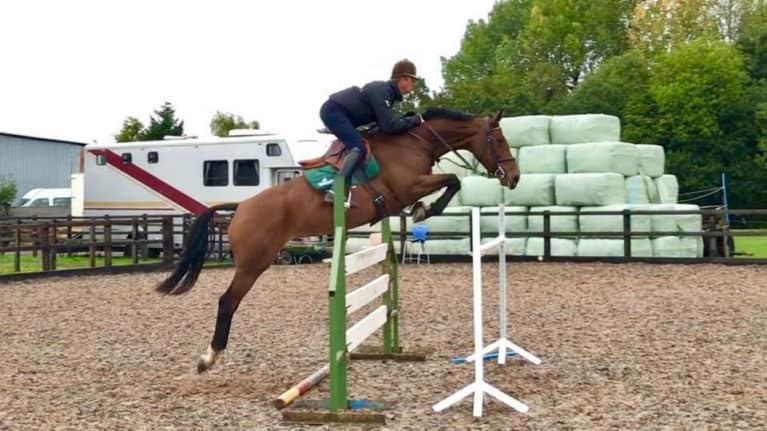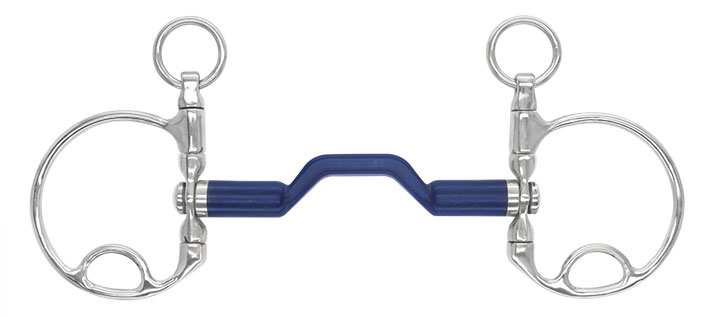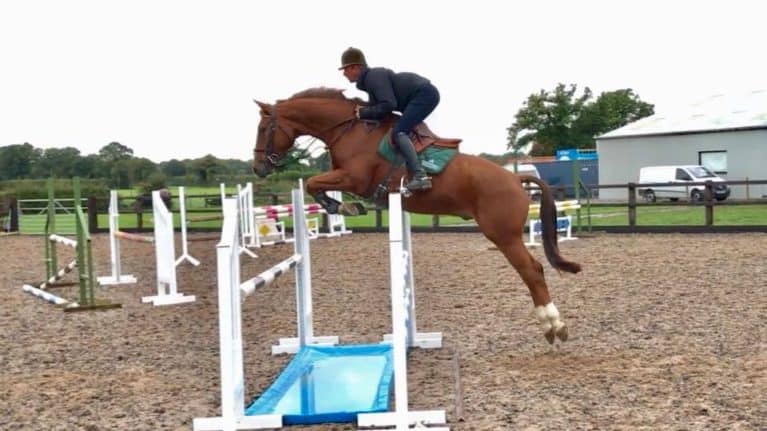
Most Read Articles

Struggling to find the perfect bit for your young horse? The team at Bombers Bits share their top tips
Eventer Hayden Hankey is an experienced horseman who’s produced some world-class horses for international riders. His own top ride, You’ve Got The Lux, aka Perfect Poppy, is stepping up to CCI4* in 2019. Plus, his young horses will be contesting the lower levels this year.
Gaining in confidence, but lacking experience
“I’ve got three horses stepping up to novice this year. At this level, they’re usually around five years old, rising six, so are gaining in confidence but still lacking in experience. I also have a couple of youngsters starting at BE100 this spring,” Hayden explains.
“Bitting is key when your horse is young. A comfortable bit won’t train a horse, but it does remove an obstacle to training. Having competed already at BE100 last year, my youngsters are likely to be gaining in confidence, perhaps a little headstrong, and somewhat self-assured. However, at this age, they’re still learning the aids and the feel of the rider’s connection, so it’s important to use a kind bit that helps in their education. They often struggle to find and keep the contact and, due to a lack of experience and confidence, can be quite tentative in the contact, even if they’re forward-going.”
Swivel bits – ideal for inexperienced equines
In dressage, the FEI now permits ported mouthpieces that swivel horizontally. This allows the horse to place the port at the angle it finds most comfortable, which helps to eliminate tongue pressure. It also allows the mouthpiece to sit more quietly in the mouth, with a smoother action.
Hayden was one of the first competitors to get his hands on an exciting new bit with a swivel action.
“Many sensitive competition horses react negatively to pressure placed on their tongue, so I’m a big fan of the new breed of swivel bits. I like the Bombers Bits DC Morgan, as I find it helps prevent green horses getting their tongue over the bit and keeps any poll pressure stable, which in turn helps to keep them relaxed and round in front of the fence. The Bomber Blue DC Morgan isn’t ridged or rough and it’s made of a soft material – so it’s not confrontational.

“The swivel element of the DC Morgan allows the cheekpiece and mouthpiece to work independently. When the contact is taken up with a bit, almost all mouthpieces will rotate in the mouth which can cause extra tongue and bar pressure. However, the swivel in the DC Morgan stops the mouthpiece from rotating, keeping the bit quieter in the mouth, and reducing pressure.”
Because of this action, Hayden finds that his young horses don’t tend to set against or brace themselves on the contact.
“A sensitive-mouthed or green horse doesn’t tend to drop behind the contact with these swivel bits. If I want my horse to carry himself with a higher frame, I’d use the DC Morgan without a bit strap behind the bit. For the horses who need to work in a lower frame, I find that adding the bit strap creates more poll pressure, helping to achieve the frame.
“This bit is very useful for a youngster who’s not used to poll leverage. It’s also helpful for teaching directional aids to a young horse when jumping, as the side elements swivel yet the bit stays still.”
The five year olds haven’t really got a mouth yet…
The DC Morgan is available in a sweet iron Happy Tongue version and a titanium version, as well as a version with the Bomber-Blue material that Hayden uses, which is made from a rubber-nylon compound. Hayden has used the Bomber Blue DC Morgan on several of his horses, including Jerry, an older horse that showjumped successfully at the British Masters in 2018 but is sensitive in the mouth, Fools In Love, a green youngster, and five-year old Cartown Galaxy.

Ideal for horses with tricky mouth conformation
Bitting specialist Stephen Biddlecombe of Equine Management Ltd says the Bombers DC range is great for horses with narrow jaws, low palates, large tongue and fleshy mouths, meaning there’s not much room for the bit in the mouth.
“The swivel action of the DC Morgan gives the horse confidence to take the contact and not block the rider,” Stephen explains. “It can help him relax across his back and become more through in his action, in turn creating more swing and engagement from his hindquarters. The DC Morgan has a drop, or hanging, cheek, but the action is a little different to a normal bit of this style, as the loose ring bridle attachment keeps poll pressure stable, as Hayden has found.
“With the DC bits, the reins attach to the large d-ring on the mouthpiece, which swings open independently of the bit’s cheekpieces. Further key features are the swivel mouthpiece and the small, loose ring bridle attachment onto which the bridle’s cheekpiece affixes, which can rotate. This ensures that pressure at the horse’s poll and cheek areas are drastically reduced,” Bomber Nel, who created the bits, adds.
The DC Morgan bit that Hayden uses isn’t dressage-legal, as it has extra rein loops, but Bombers also produces a dressage-legal version called the DC Dressage Swivel. Both versions are ported and are available in a sweet iron Happy Tongue version, as well as in the Bomber-Blue material and titanium.
Watch videos on the DC Morgan bits at these links.
Facebook: BomberBlueBitsUK
Contact Distributor Equine Management for stockists on 01825 840002.













